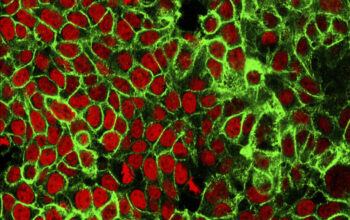- Millions of Americans suffer from depression, but a new study finds hope.
- A groundbreaking new technique, which is non-invasive, shows promise.
- The procedure uses magnets and is often covered by insurance.
A groundbreaking therapy called transcranial magnetic stimulation (TMS) has gained extensive scientific backing and regulatory approval from the Food and Drug Administration. TMS, a completely noninvasive treatment, employs magnetic pulses to stimulate nerve cells responsible for controlling mood, specifically targeting depression.
Remarkably, a recent study conducted by UCLA Health has revealed the effectiveness of a specific type of TMS in patients battling major depression, even after numerous failed courses of antidepressant drugs.
Known as repetitive transcranial magnetic stimulation (rTMS), this innovative therapy demonstrates rapid relief, with patients often experiencing improvement within a week of treatment initiation, as confirmed by Dr. Michael Leuchter from the Semel Institute for Neuroscience and Human Behavior. The procedure involves placing a magnetic coil against the scalp or utilizing a helmet with magnetic coils.
Although the exact mechanism behind TMS remains somewhat elusive, medical experts postulate that it stimulates underactive brain regions implicated in depression. With its non-invasive nature, TMS eliminates the need for surgery, injections, or anesthesia, making it a generally painless intervention, only accompanied by mild discomfort from wearing the magnetic coil and the tapping sound it generates.
The FDA approved the use of TMS to treat major depressive disorder in 2008. The therapy is generally used after other treatments, such as antidepressant medications, have failed to relieve the symptoms of depression.

















